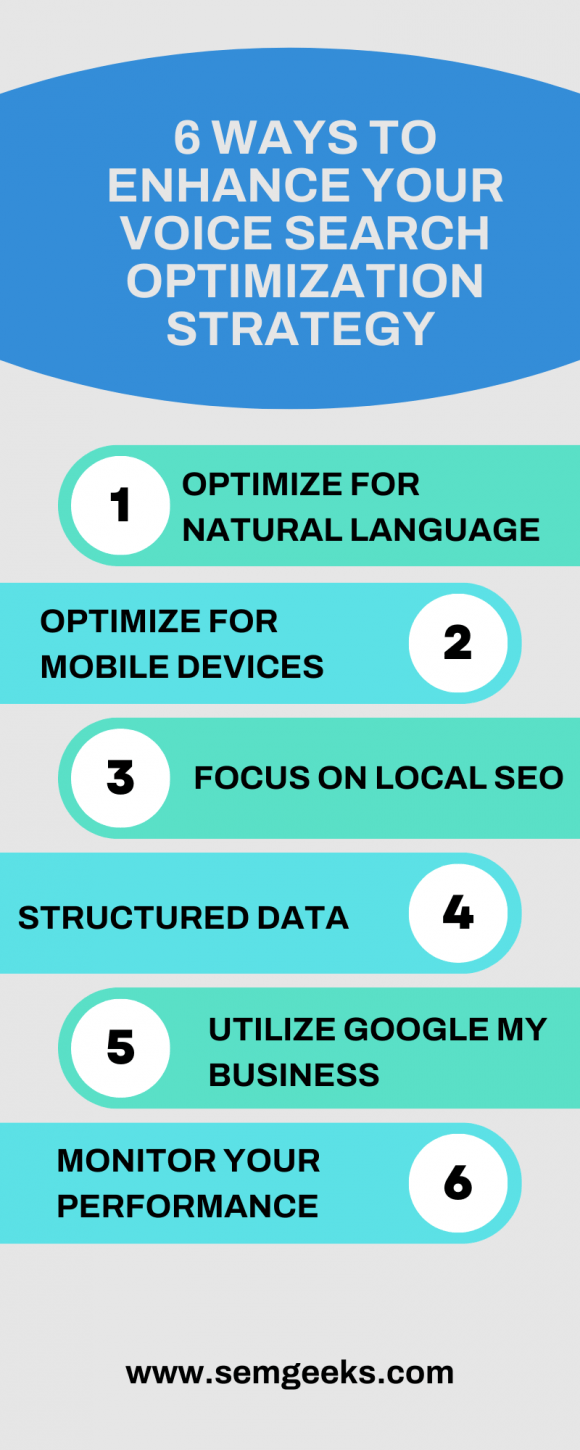When voice chat first emerged many speculated that it would be nothing more than a passing fad. But, Siri, Cortana, Alexa, et. al proved the skeptics wrong. This fast, convenient, hands-free search method managed to stick, especially with older demographics who didn’t grow up with smartphones.
Now, seeing as more than one in four people worldwide use voice search daily, it’s paramount to optimize your SEO strategy with voice search optimization in mind.
What does that involve? Here’s how to rank higher with voice search.
Why Does Voice Search Matter?

When asked why users preferred voice queries, some of the most popular responses by share of respondents included:
- It’s quicker than going on a website or using an app (43%)
- User experience I can use it while driving or when my hands are occupied (42%)
- It’s more functional than other traditional search methods (38%)
- It’s easier than going on a website or using an app on a smart device (38%)
- It’s a more accurate way of searching for quick answers (28%)
- I don’t like typing on my mobile phone (21%)
Including voice search functionality on your website is not only advisable but may also be mandatory under the Americans with Disabilities Act. By incorporating voice search, your website becomes more inclusive and accessible to individuals who may have physical limitations preventing them from typing or seeing.
4 Strategies to Maximize Your Voice Search SEO Strategy
So, how can you optimize your website for your voice search SEO strategy? Consider these tips:
 #1 Mobile and Local Go Hand In Hand
#1 Mobile and Local Go Hand In Hand
In a mobile-first world, voice search is closely tied to local searches, particularly hyper-local queries and requests, with more than 50% of adults using artificial intelligence daily.
For example, a user may ask for a store’s address, contact information, and hours of operation. Or they may request the voice bot to take a specific action like making reservations on their behalf.
A normal local voice search SEO strategy is almost singularly focused on Google My Business, seeing as Google commands the lion’s share of conventional search requests. But that’s not the case with voice search. Because a person might be using an Android, Apple, or Alexa device, you must also optimize for the other voice search engines that are tied to those specific mobile or IoT devices.
In other words, you need to cover all your bases by setting up and optimizing the following pages:
- Google My Business
- Apple Maps Business
- Bing Places
- Yelp Business listing
#2 Target Question – Conversational Keywords
Voice searches differ in content from regular search in terms of length and wording. The typical verbal search tends to be longer and more specific.
We speak in full sentences but regularly type in shorthand.
For instance, on Google, you might just write “best restaurants.” But on search, you might ask “Siri, give me the best restaurants within driving distance of me.”
As a result, you should specifically target long-tail keywords, particularly those in question form, which tend to have higher user intent. You can target these keywords by:
- Including a FAQ section
- Having Headers that address these questions
- Look at Google’s “people also ask” or “related searches”
#3 Keep It Conversational
As mentioned, voice search rankings have a different tone than normal search terms. They tend to be more conversational in nature and less formal.
When you write your blog posts, consider catering some of those to address local search topics related to your business location and then write them in a more informal manner. That may include conversational language that a voice assistant might use like filler words like “I, me, you, of the, the, on the, to, and for.”
To tailor your language to human language, ask yourself questions like:
- What questions are people asking?
- What types of answers are the best response to these queries?
- What is the conversational style of the questions?
#4 Try to Grab Featured Rich Snippets
Featured snippets aren’t only important for desktop and mobile search, they’re equally vital for voice search results. According to Search Engine Journal, 60% of all voice search answers come from featured snippets.
These short content blurbs are typically displayed above Google organic SERPs and are pulled from a web page that ranks highly for that specific query.
You can’t guarantee that you’ll capture the Google Snippet, but you can focus your content plan to cater to questions that locals need answers to.
How Does Voice Recognition Technology Affect SEO?
Voice search is a technology that allows users to verbally ask questions and receive answers from a search engine. Voice search is becoming increasingly popular, with recent studies showing that nearly half of all online searches are done with voice. This has had an impact on SEO (Search Engine Optimization), as companies need to optimize their website content for effective voice search SEO queries in order to stay competitive.
Voice search works differently than traditional text-based searches. Instead of using keywords for voice search relies on natural language processing (NLP) to understand the user’s query and provide accurate results. This means that companies must tailor their content to match the more conversational and descriptive queries people use when speaking instead of typing. Additionally, companies need to create content that is optimized for mobile devices, as most voice searches are done on mobile devices.
By optimizing their content for voice search, companies can increase their visibility and rankings in SERPs (Search Engine Result Pages). Additionally, companies that optimize for voice search are more likely to have their content featured prominently in the “featured snippet” section of SERPs, which gives them a competitive advantage over those who do not optimize for voice search.
Popular Voice Search Devices and Search Engines
Voice search has grown rapidly in popularity in recent years, becoming increasingly integrated into the everyday lives of many people. To maximize their SEO strategy for voice search, companies and marketers need to understand which devices are popularly used and which search engines are driving traffic.
The two most popular voice search devices currently on the market are Amazon’s Alexa and Google Home. Amazon’s Alexa is a popular digital assistant that can be used to search the web, play music, and much more. Google Home is another voice-activated device that allows users to access information from Google’s search engine.
Additionally, it’s important to understand which search engines are driving the most growth in voice search. Currently, Google dominates the voice search market with over 82% of all voice searches powered by their engine. Other popular search engines include Bing, Yahoo, and DuckDuckGo.
Voice search is rapidly becoming a mainstay of online search, and companies need to optimize their content for this technology if they want to stay competitive in the marketplace. By understanding which devices are popularly used and which search engines are driving traffic, companies can tailor their local NJ SEO voice search around this.
6 Ways to enhance your Voice Search Optimization Strategy

1. Optimize for Natural Language: When optimizing for voice search, it’s important to think about how people talk and use natural language when speaking rather than typing. This means that content should be written in a more conversational style, using long-tail keywords and natural phrases that people are likely to use.
2. Optimize for Mobile Devices: Most voice searches are done on mobile devices, so it’s important to create content that is optimized for these devices. This includes ensuring that the website loads quickly , is easy to navigate, and is responsive to different screen sizes.
3. Focus on Local SEO: Voice search is often used to find local businesses and concise answers, so it’s important to focus on local SEO when optimizing for voice search. This includes ensuring that your business information (name, address, phone number) is accurate and up-to-date in online directories and review sites.
4. Use Structured Data (schema markup): Structured data is a way of marking up content on the web to make it easier for search engines to understand and index. By using structured data, companies can improve their visibility in SERPs, especially when it comes to voice search.
5. Utilize Google My Business: Google My Business is an invaluable tool for businesses looking to optimize their SEO for voice search. By setting up a profile on Google My Business and ensuring that it’s kept up-to-date, companies can increase their visibility in SERPs.
6. Monitor Your Performance: Finally, it’s important to monitor your website’s performance to see how well you’re doing with voice search optimization. Tools like Google Search Console can help you track your website’s performance and make adjustments as needed. By following these 6 tips, companies can maximize their SEO strategy for voice search and stay competitive in the ever-changing digital landscape.
How is voice search SEO different from other types of search?
Voice search SEO is different from other types of search engine optimization because it requires a more natural language, conversational approach with automatic speech recognition. It’s important to think about the phrase and common questions people would use when searching with their voice. For example, if someone is looking for a restaurant in Toronto, they’re more likely to say “Where’s the best Chinese food in Toronto?
Semgeeks: The Best Local NJ SEO Company
Voice search isn’t a passing fad. It’s here to stay.
As voice search technology continues to evolve and become more sophisticated, societal acceptance and reliance will continue to grow, making it more important than ever to maximize your SEO strategy to cater to this search method.
Need guidance? Semgeeks is a digital agency that specializes and has experience in all things SEO. Our team of SEO strategists can help you create a content plan for voice search that converts and has an impact. If you’re ready to speak up, let’s talk today.
 #1 Mobile and Local Go Hand In Hand
#1 Mobile and Local Go Hand In Hand